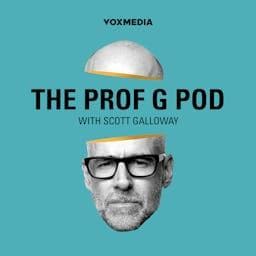Nvidia just lost $600 billion in value in a single day—the largest single-stock drop in history—and all because of a Chinese AI startup called DeepSeek. But this isn’t just about Nvidia or AI. It’s about how America is battling its own assumptions about innovation, efficiency, and progress. In this video, I'll talk about (1) how DeepSeek built a groundbreaking AI model for just $6 million (2) why U.S. tech companies like Meta and OpenAI are spending billions—and if that’s sustainable (3) the impact of federal funding freezes and policy decisions on America’s innovation pipeline (4) why the U.S. might be stuck in a “cold war” with itself over how progress should look and (5) what this means for the future of AI, talent allocation, and global competition.
DeepSeek isn’t just disrupting the AI industry; it’s forcing us to ask some hard questions about how we measure success.
00:00 Intro
00:58 Our Broader Challenges
03:08 What Is DeepSeek?
05:00 How did they do it?
05:27 Innovation
08:40 The State of Tech
11:49 Financial Engineering
12:58 Talent
15:45 Final Thoughts
EIG paper: https://eig.org/exceptional-by-design/
Music Used
'Shadows and Dust' by Scott Buckley - released under CC-BY 4.0. www.scottbuckley.com.au
'Nightfall' by Scott Buckley - released under CC-BY 4.0. www.scottbuckley.com.au
'Incantation' by Scott Buckley - released under CC-BY 4.0. www.scottbuckley.com.au
'Shoulders Of Giants' by Scott Buckley - released under CC-BY 4.0. www.scottbuckley.com.au
'Uprising' by Scott Buckley - released under CC-BY 4.0. www.scottbuckley.com.au
'Anna's Theme' by Scott Buckley - released under CC-BY 4.0. www.scottbuckley.com.au
'Parasite' by Scott Buckley - released under CC-BY 4.0. www.scottbuckley.com.au
'Shoulders Of Giants' by Scott Buckley - released under CC-BY 4.0. www.scottbuckley.com.au
DISCLAIMER: This video does not provide investment or economic advice and is not professional advice (legal, accounting, tax). The owner of this content is not an investment advisor. Discussion of any securities, trading, or markets is incidental and solely for entertainment purposes. Nothing herein shall constitute a recommendation, investment advice, or an opinion on suitability. The information in this video is provided as of the date of its initial release. The owner of this video expressly disclaims all representations or warranties of accuracy. The owner of this video claims all intellectual property rights, including copyrights, of and related to, this video.



























